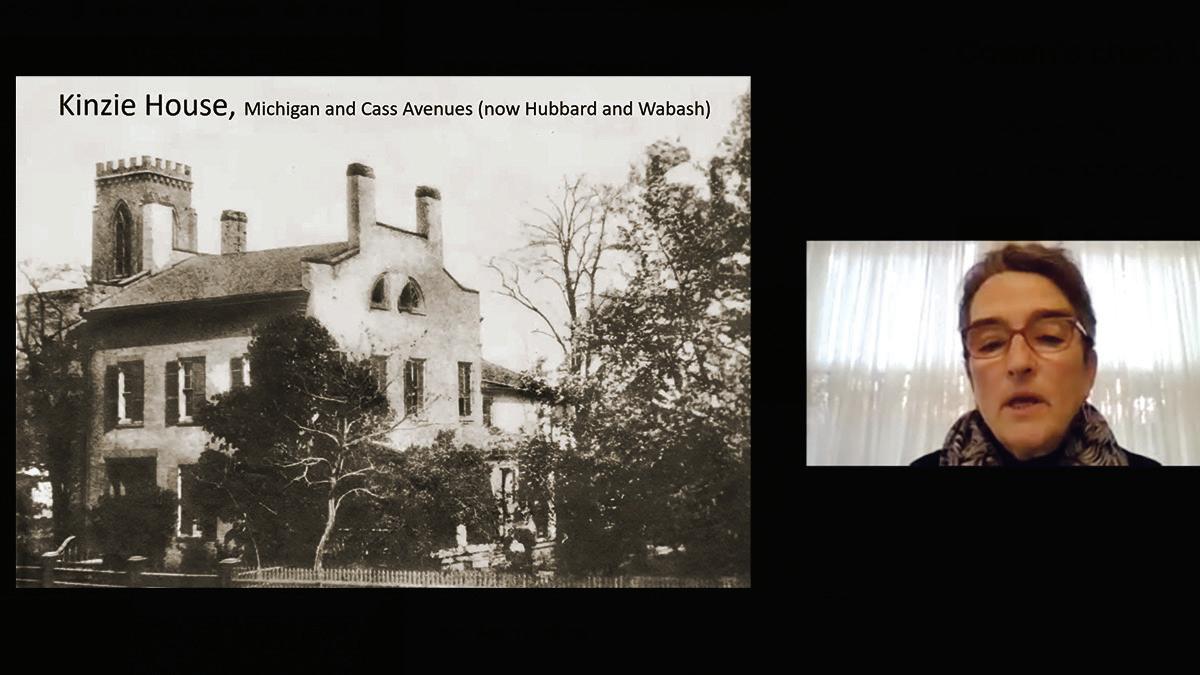
6 minute read
The Newberry in the Time of COVID-19
The heart of the Newberry may be the collection, but the soul of the library is the community that coalesces around it. The Newberry’s community of learning transcends the walls of any physical space. It is blossoming online during these uncertain times.
Launched in 2017, Newberry Transcribe enables users anywhere in the world to view and digitally transcribe more than 50,000 pages of letters and diaries from archival collections held at the library.
Advertisement
The website makes accessible to anyone with an Internet connection a wealth of manuscript material, including Revolutionary War business records, diaries of nineteenthcentury settlers, letters written by Willa Cather, and much more. Anyone who chooses to can help make these materials more accessible by transcribing them, turning handwritten words into machine-readable data that researchers can find more easily using keyword searches. And they can do this work even while living under stay-at-home orders in this new world of being #alonetogether.
Newberry Transcribe
PAGE VIEWS 20,000
Newberry Transcribe has been popular from its start three years ago. Between 2017 and March 2020, users had transcribed almost 20,000 pages of the site’s nearly 50,000 total pages. During the last two weeks of March 2020, after the Newberry temporarily closed due to public health concerns over COVID-19, visitors transcribed an additional 5,100 pages, raising the total number of transcribed pages on the site to more than 25,600—a 25 percent increase in just two weeks!
“Participatory resources are always popular,” says Jennifer Dalzin, Director of Digital Initiatives and Services at the Newberry. “But with so many people confined to their homes, we’ve seen an unprecedented surge in new volunteers and activity. Newberry Transcribe offers users
10,000
Mar 13 Mar 15 Mar 17 Mar 19 Mar 21 Mar 23 Mar 25 Mar 27 Mar 29
Newberry Volunteer Transcribers In Their Own Words
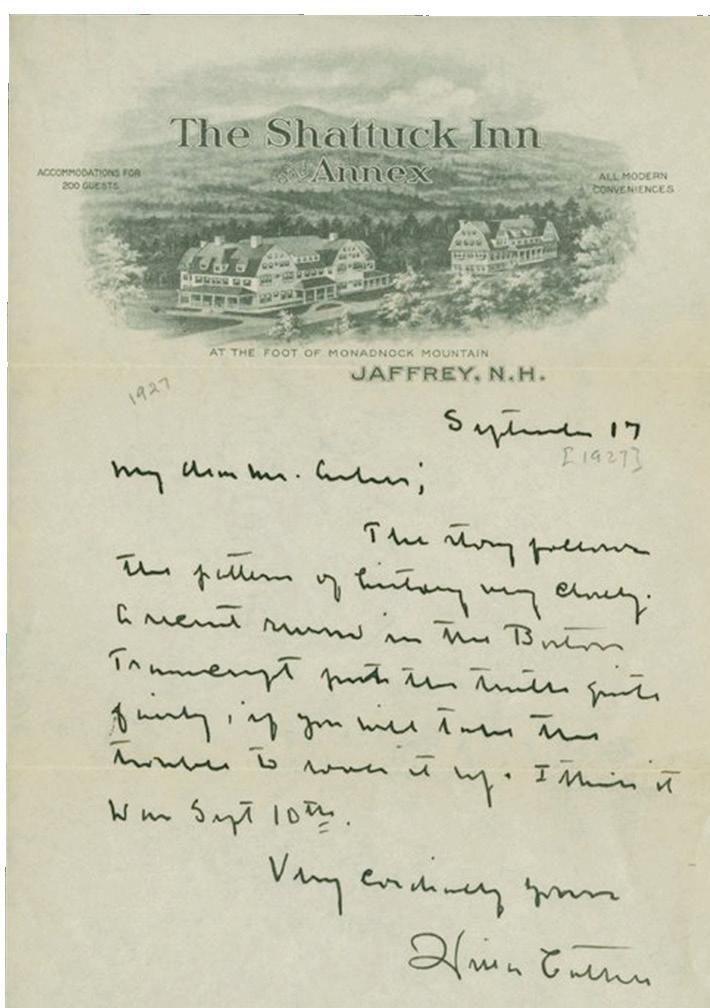
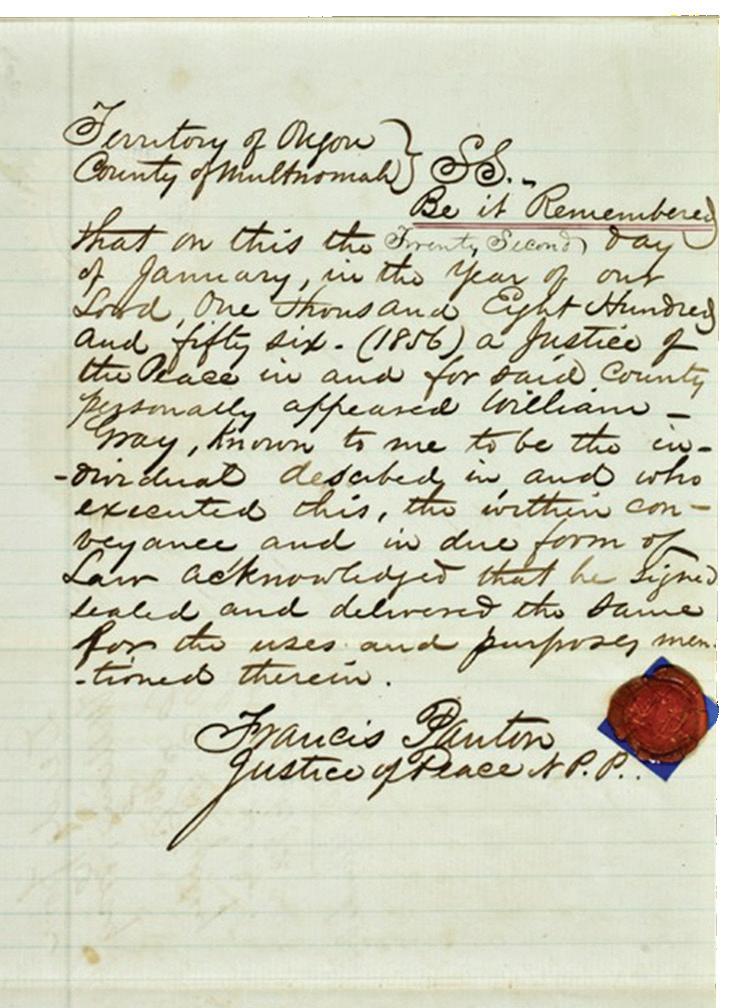
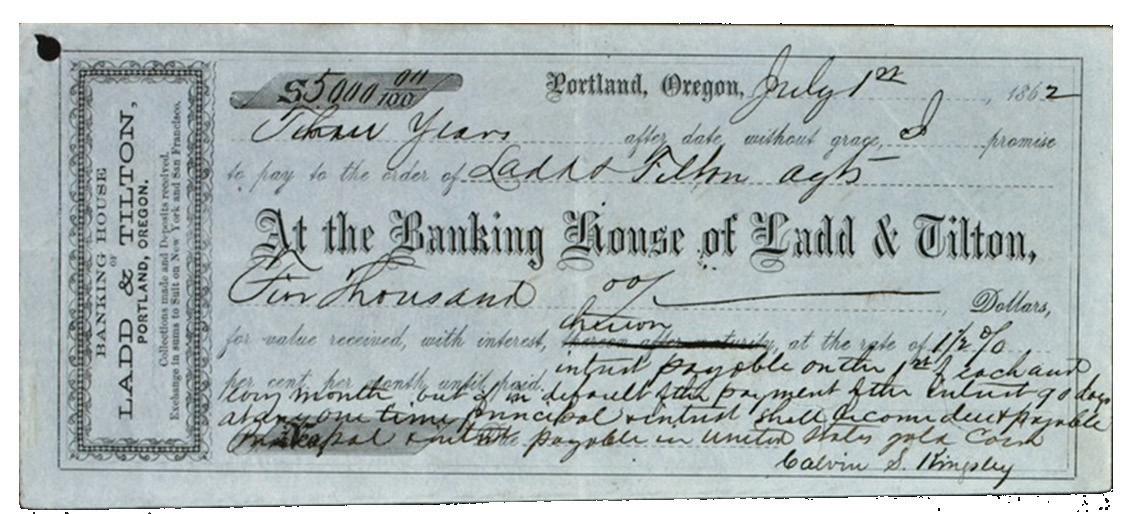
“I’ve found that I start to feel close to the people whose diaries and letters I am transcribing. I’ve transcribed Julia Newberry’s diary. She wrote about attending a concert conducted by Strauss and she and her sister could hardly sit still—they wanted to get up and dance! Then she wrote about her house burning in the Great Chicago Fire and losing all the letters that her deceased father had written her. She was heartbroken.”
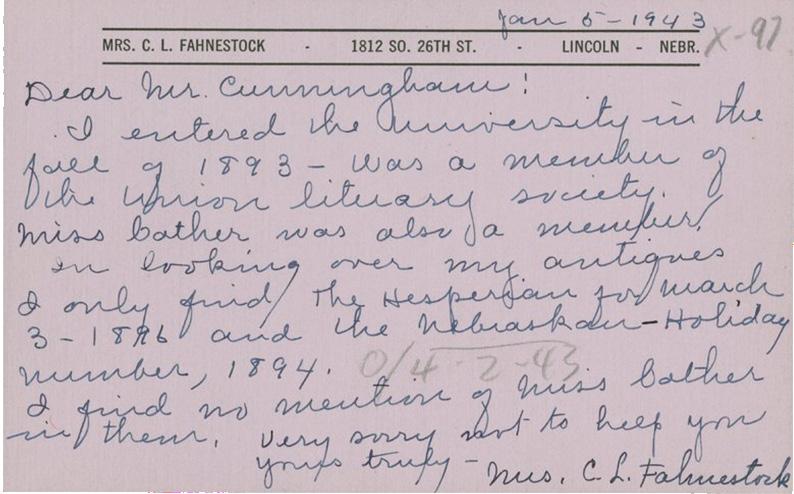
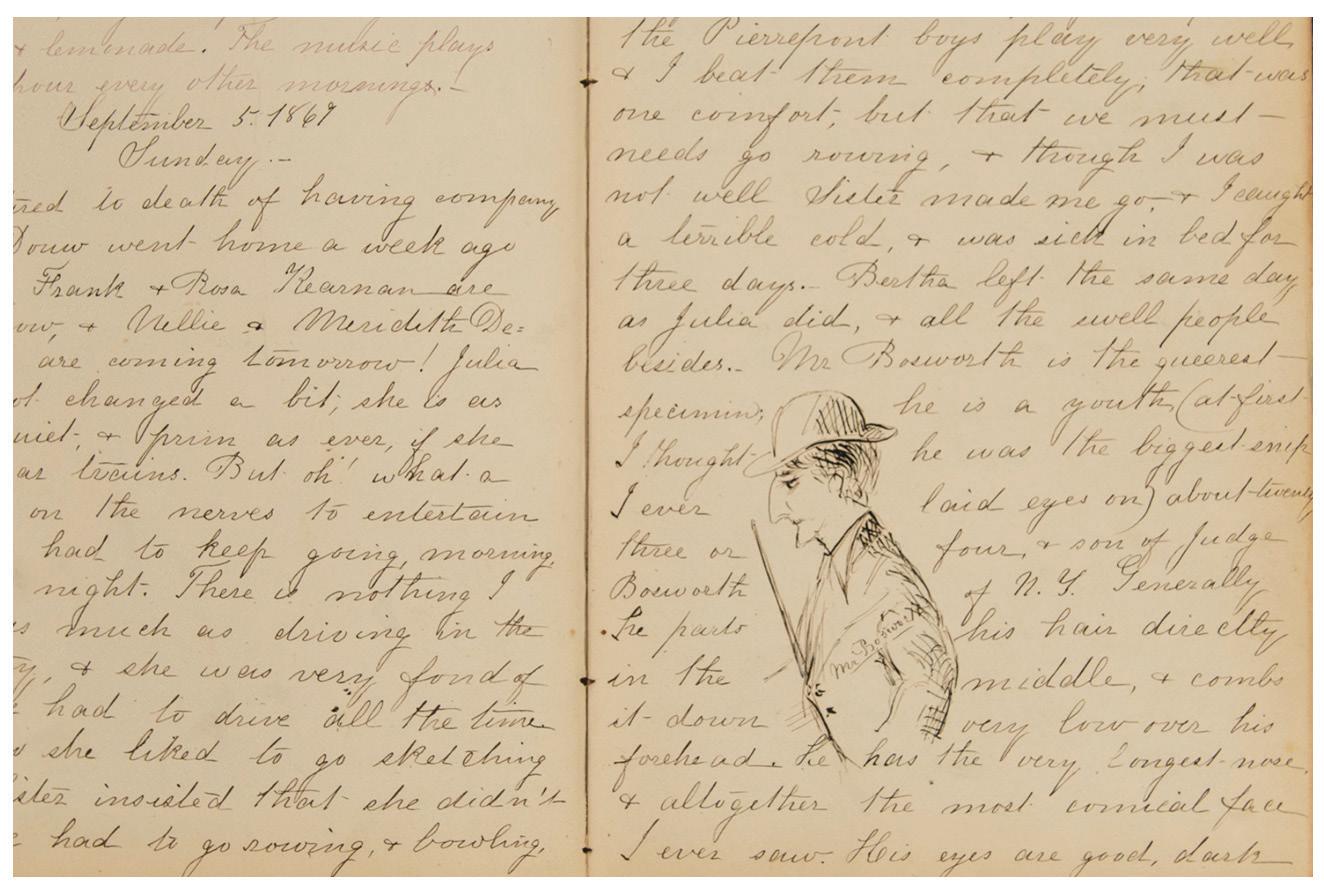
Live Look: Simon Pokagon’s Red Man’s Greeting with Rose Miron
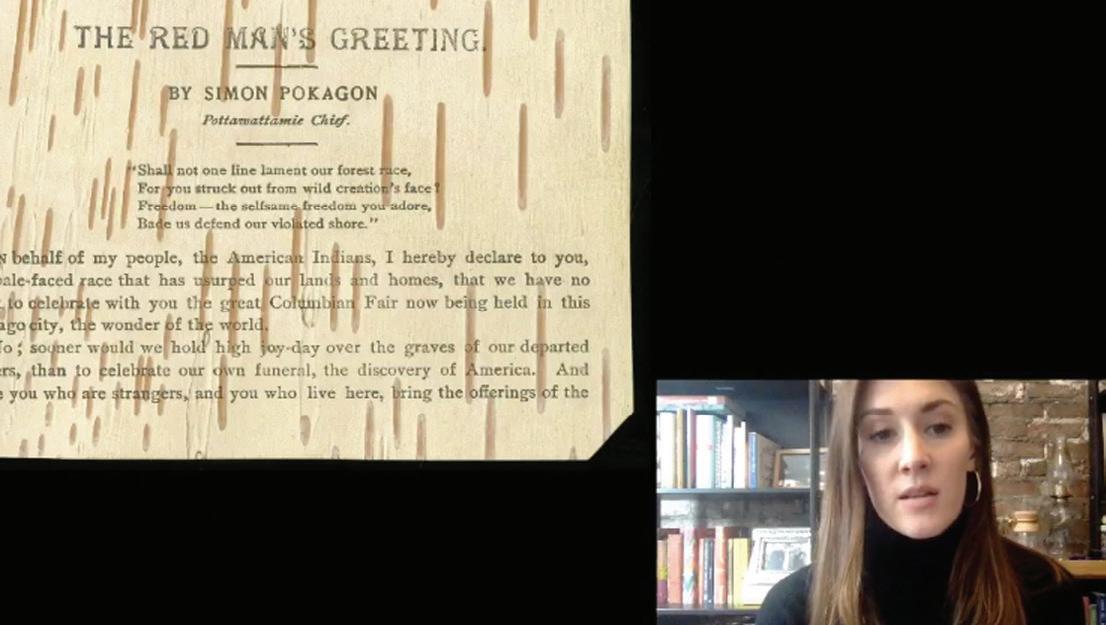
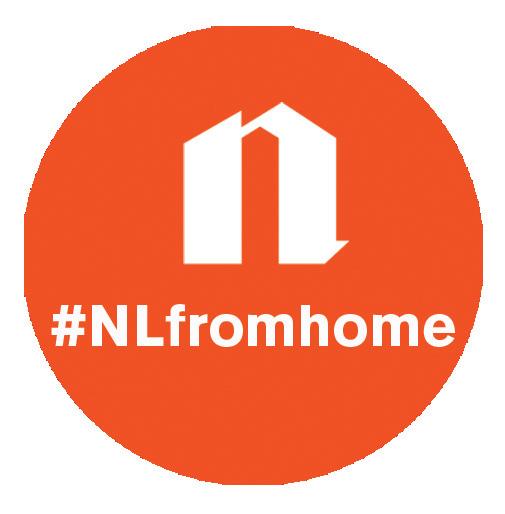
Live Virtual Tour: The Curt Teich Postcard Archives with Will Hansen
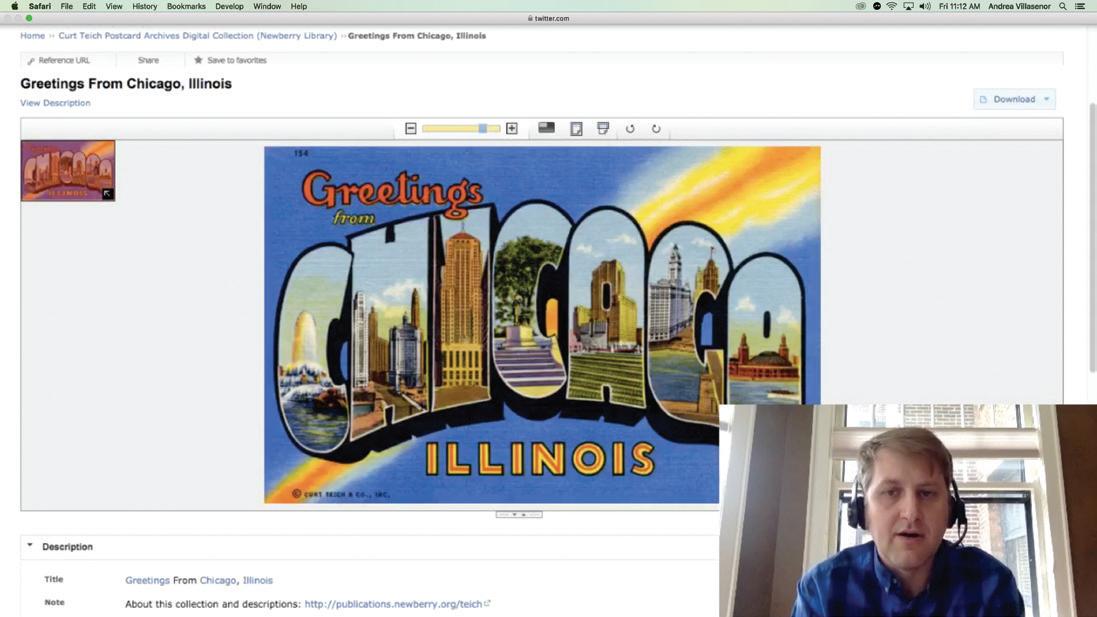
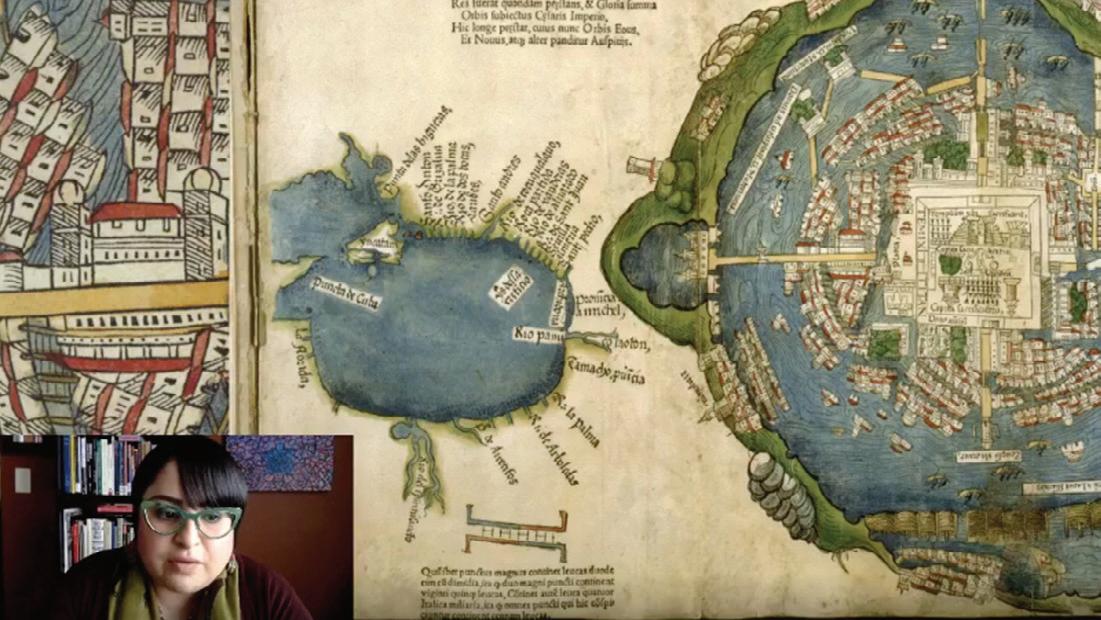
Live Look: Cortes’s Map of Tenochtitlan with Analú LÓpez
Live Look: Lady Mary Wroth’s Scandalous Unpublished Manuscript with Becky Fall
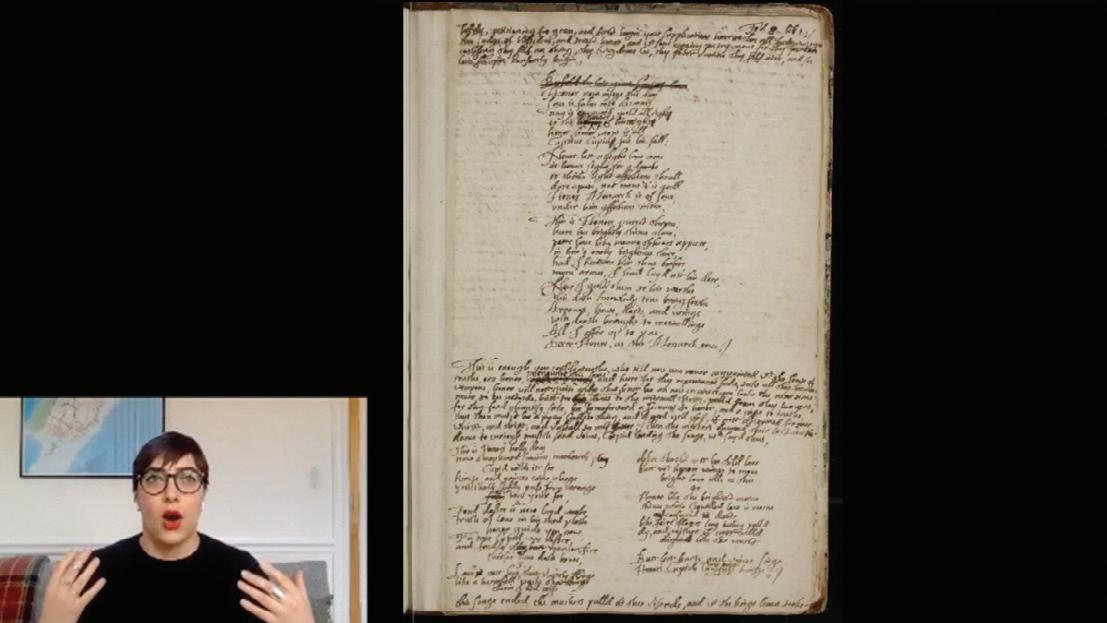
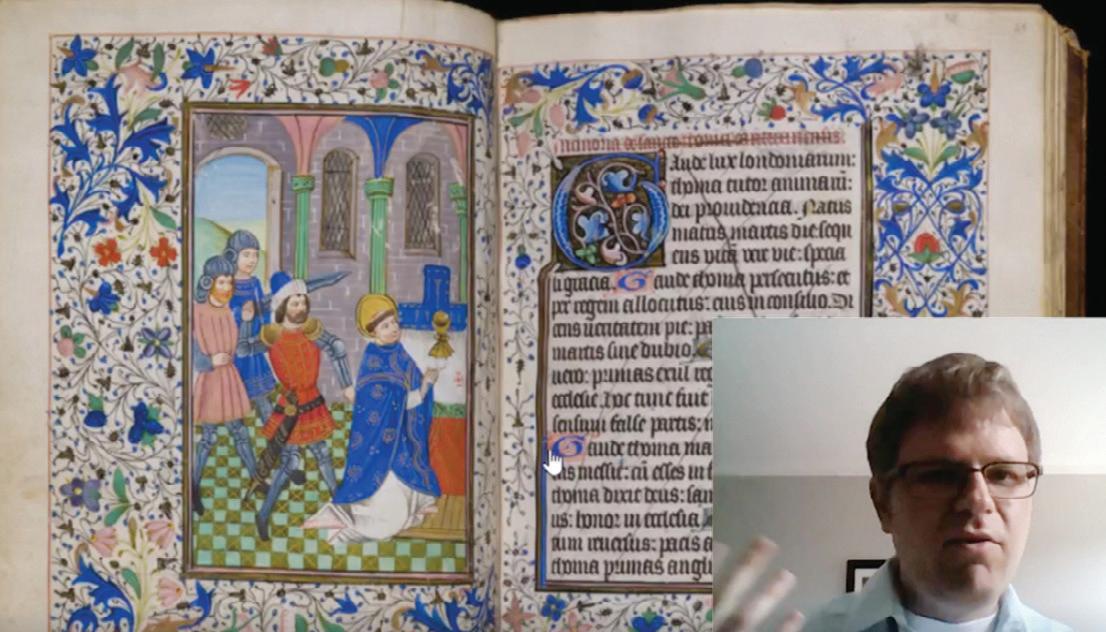
Live Demo: Digital Collections for the Classroom with Kara Johnson
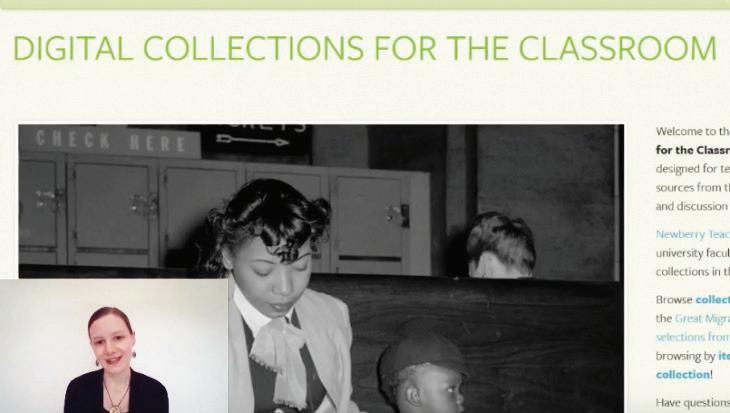
On the library’s social media accounts, librarians, curators, and educators are taking turns going live from their homes, sharing their favorite collection items, digital learning tools, and, in some cases, even their pets with audiences around the world.
an opportunity for in-depth engagement with our collections right from their living rooms—and a number of folks are taking us up on that offer right now.”
As one transcriber told us: “With libraries, museums, archives, and orchestra rehearsal spaces shuttered because of the COVID-19 virus, and with instructions from authorities to ‘stay home and practice social isolation,’ I thought this would be an excellent way to relieve the boredom and make a contribution.”
“It’s quite a lot of fun,” wrote another participant in the transcription project, “especially trying to resist the temptation to Historian Ann Durkin Keating shares her latest research during a virtual conversation on April 14.
properly spell and punctuate a nineteenthcentury author’s manuscript!”
Many people who participate in Newberry Transcribe search for ways to engage students through video conferencing, appreciate opportunities for worthwhile diversion while social our Digital Collections for the Classroom site is there to serve their distancing. Other users have more personal reasons for joining needs. the transcription effort. In addition to promoting pre-existing digital resources,
Gordon from Canada was initially drawn to our site library staff are finding new ways to advance the Newberry’s because he’s in the midst of transcribing and re-typing his mission remotely. On the library’s social media accounts, grandfather’s diaries. “Getting these sorts of materials into a librarians, curators, and educators are taking turns going live state where they can be searched through is important to me,” from their homes, sharing their favorite collection items, digital he says. “This felt like something important to at least try and learning tools, and, in some cases, even their pets with audiences help with in whatever limited way I could.” around the world.
“Being disabled, transcribing has helped me to feel Thousands of people have viewed these videos already, and like I’m contributing to society by doing this work,” says the Newberry will continue to experiment with this form of Christian Mobley, another Newberry Transcribe contributor. engagement while the library remains closed to the public. “I love anything to do with history, how people lived in the Newberry programming is going virtual, too. On past, or what they had to go through. I see what I’m doing as April 14, for example, Newberry Vice President for Research transcribing history for future learning.” and Academic Programs Brad Hunt interviewed historian
“As we try to make sense of life during a historic event, Ann Durkin Keating for an audience of viewers on Zoom. the act of transcription can provide both a distraction and Meanwhile, the library’s Center for Renaissance Studies a reminder that this too will pass,” said Digital Initiatives is hosting regular book discussions and writing workshops Manager Jen Wolfe. “We’re grateful to the public for making online for graduate students searching for ways to continue these first-hand accounts of surviving war, fire, flood, and past their studies remotely. epidemics more accessible to the Newberry’s researchers.” No one knows for certain how long this pandemic will
While Newberry Transcribe offers ways for members of the last or when social distancing guidelines will be relaxed. public to stay active in our community and continue making use No matter what, the Newberry will continue to fulfill its of our collections, other digital resources at the Newberry serve mission of providing access to its collection and building more specific audiences. communities around stories that bridge the past and
Digital Collections for the Classroom, an online resource present—whether in person or (for the time being) from a designed for teachers, has been one of the most frequently safe, digitally mediated distance. consulted parts of the Newberry website for years. The platform features high-resolution images of primary sources from our collections, contextual essays written by scholars, and discussion questions for students. Now, as teachers (and parents, too!)
